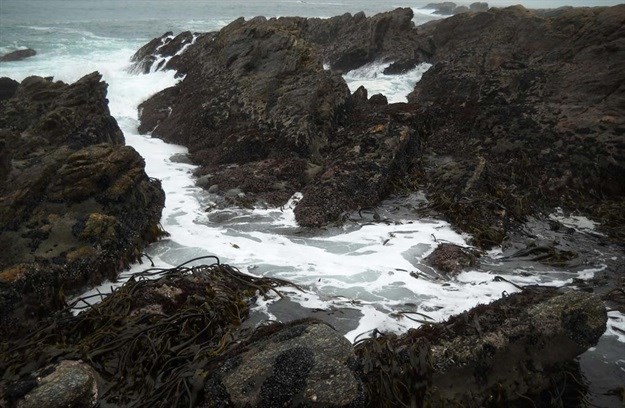Companies entering sectors like aquaculture, offshore oil and gas, and marine manufacturing and transport will need to navigate complex and demanding environmental regulations governing the marine environment to avoid falling foul of the law.

Location of brine discharge - Volwaterbaai Desalination Plant
This follows the South African government's intention to develop the economic potential of the oceans, estimated to have the potential to contribute up to R177bn to GDP by 2033 through its Operation Phakisa.
"The marine environment and coastal zone are highly sensitive and a marine ecology assessment is usually required when assessing the likely impacts of activities like port dredging and effluent discharges," said Sharon Jones, principal environmental consultant in SRK Consulting's Cape Town office.
Operation Phakisa includes the Phakisa Offshore Oil and Gas initiative, with an emphasis on an increase in exploration activities. It also embraces the Phakisa Aquaculture initiative, which aims to grow the aquaculture sector in South Africa to enable it to play an important role in the supply of fish products and job creation while contributing significantly to the national economy. SRK is currently working on one of the projects as part of this initiative, where it is managing the EIA and associated permit applications for the Doringbaai Aquaculture Development.
Compliance requirements
"The National Environmental Management: Integrated Coastal Management Act (NEM: ICMA) - one of a number of 'specific environmental management Acts' - adds various permits and applications to the compliance requirements for activities in the sea and coastal zone," said Jones. "These are in addition to environmental authorisations required by the National Environmental Management Act (NEMA) environmental impact assessment (EIA) regulations."
While the NEMA EIA regulations require authorisations for physical infrastructure and development within the coastal zone and below the high water mark of the sea, the NEM: ICMA also calls for coastal water discharge permits for any discharging of effluent into the sea, and permits for dumping at sea of material like waste or dredge spoil.
Chris Dalgliesh, partner at SRK Cape Town, emphasised the complexity of the marine environment and the extent to which different factors affect each other - from water temperature and water quality, to flow patterns and currents.
In recent years, SRK has been involved in a range of marine-based EIAs, including upgrades to large ports, fishmeal plants, oil and gas projects, aquaculture and desalination plants where considerations have included the design of marine infrastructure, potential water quality impacts of dredging, or the discharge of saline water from desalination plants, and blood-water from fishmeal plants.
Mitigation measures
"We have conducted EIA studies in which assessing possible impacts and recommending mitigation measures requires specialist input on the physical marine environment and marine ecology. Work previously undertaken on marine-based projects augments our understanding of what environmental impacts a project is likely to have so that we can plan for the appropriate studies and undertake permit applications on behalf of our clients," said Dalgliesh.
"EIAs consider the full life-cycle of a project, so they need to look at not just the biophysical impacts on marine life but also on the social impact," said Jones. Stakeholder engagement is therefore vital, especially when new projects may affect community livelihoods such as the fishing industry.
SRK's experience in the application and permitting processes helps clients to schedule these phases more accurately to avoid unnecessary delays. In the case of a recent desalination plant project, for instance, construction and operation activities required authorisation in terms of the NEMA EIA Regulations, while a parallel application for a Coastal Waters Discharge Permit was also required in terms of the ICMA.
"While government has endeavoured to streamline the application processes, they nonetheless require sound knowledge of the relevant legal and technical issues before they can be efficiently navigated," said Jones.




































